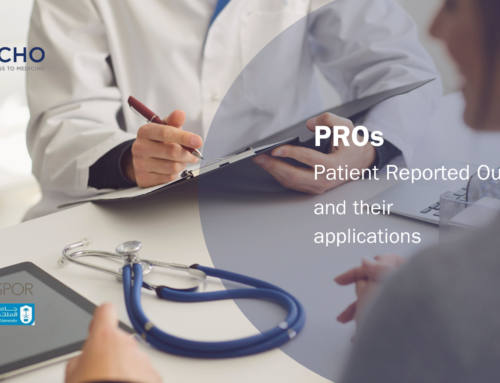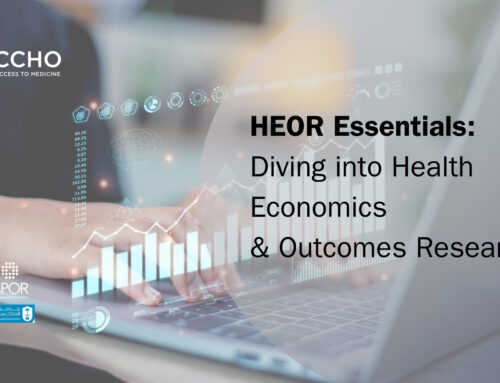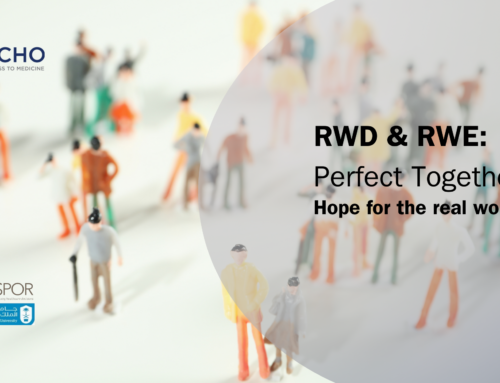CCHO participates in a booth and symposium at ISPOR Dubai, September 2018




The Centre of Clinical, Health Economics, and Outcome Research (CCHO) hosted a symposium at ISPOR Dubai on the 19th and 20th of September 2018. The symposium revolved around Harnessing the power of partnership in Real World Data to accelerate patients’ access to innovative treatment: THE MENA EXPERIENCE.
Real World Evidence (RWE) is a fundamental tool that affects all stakeholders in the healthcare system, guides decision-making, and contributes constructively to economic modeling. Unfortunately, the MENA region lacks the necessary data for efficient economic modeling.
The symposium included panelists Ghassan Hamadeh (MD, CPE), Christiane Maskineh (MBA, eDBAc), Russell Becker (MS), Ola Ghaleb Al Ahdaf (PhD, PGC, RPh, BSC), Kasem Akhras (PharmD), Fahad Sahood Al- Nutaify (BSc. Pharm, MSc.HEcon, MPH), Mohamed Hussein (PhD), Marie-Thereise Estephan (MD).
The stakeholders were set to address three main topics: the current state of data sources in the MENA region, how the gaps in data sources can be addressed through collaborations and research methodologies, with reasonable attention to cost, time, and resources, and how this approach could improve patients access to innovative treatment that has been historically absent in the Middle East.
The panel opened with Ghassan Hamadeh, MD, who emphasized that although there is a lot of present data, most of it is unusable or absent. CCHO aims to create a new model of collaboration between decision-makers in the industry, government, insurance companies, universities, and researchers.
Dr. Hamadeh said the challenge is in is “legislating the use of data, controlling it, protecting the privacy of people, and sharing and linking data across RWD sources.”
Christiane Maskineh, E-DBAc, healthcare executive at CCHO, built upon Ghassan Hamadeh’s response and further emphasized the importance of collaborating within the healthcare ecosystem. Maskineh highlighted the collaborative initiatives that were taking place to improve real data worldwide, and how similar published initiatives in MENA are in the literature, which is why CCHO is inspired to build what Maskineh calls “the most comprehensive data or reward evidence for the Middle East”, which would be made accessible to the Healthcare community and helps as HTA foundation in the Middle East.
Maskineh continued: “Our project is composed of 2 parts: CCHO collaborating with 2 important partners in Lebanon, the school of public health at Saint Joseph University and GlobeMed.”
Maskineh elaborated on the milestones that CCHO has achieved so far, starting with two years of governance work, developing a contract with GlobeMed, assigning a set of policies and procedures securing the data integrity and privacy. The final steps have been to implement the ideal infrastructure and IT portal, she explained. The last stage would be to leverage a team of analysts to make sure the data is efficient for the use of the stakeholders.
In a detailed data analysis of bladder cancer in Lebanon, CCHO senior consultant and partner, Russel Becker, explained how the GlobeMed database influenced a comprehensive retrospective study of bladder cancer. Becker compares outpatient and inpatient data, and shows a steady increase in the number of bladder cancer cases over the past 10 years. However, there is also an increase per patient cost and an even greater increase in the population cost. Becker’s case study emphasized the importance of real evidence and data, and how it can benefit localizing economic models and studies in MENA region.
Mohammad Hussein, PhD, also highlighted the importance of data reliability,
and Fahad Sahood Al-Nutaify, BSc Pharm, MSc H Econ, MPH, supported the conversation with an insight into the healthcare data system in KSA.
When asked about the relevance of this initiative to the industry, Dr. Marie-Thereise Estephan gave her insight on the drug market. Dr. Estephan said: “We give them [the patients] promises when we put a drug on the market we give them promises on a certain outcome based on RCT.” She added:
“Understanding what happens in the real world setting is very beneficial to the industry, so real world data is also beneficial to see a clear outcome and to provide added value to the community. We want to be a partner in that discussion.”
Kasem Akhras, PharmD, summarized the conversation by showing how critical the identification of data sources is, and how much it can bridge the gap between the stakeholders. Akhras said: “Clinical parameters drive economics.”
Although all panelists agreed on the challenges and difficulties of Real-World Evidence in the MENA region, there was a positive conclusion considering the future-prospects of RWE. Most stakeholders have been taking constructive steps in shaping the data and economic modeling in the health industry, and with platforms like ISPOR, the future of efficient healthcare seems to be less far away.







